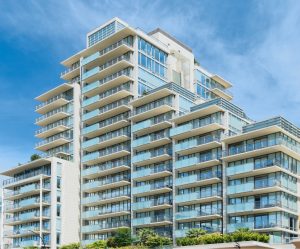 Over the last decade, there has been a trend in Chicago – and many other major American cities – towards converting condo buildings into rental apartments. According to reporting from Loop North News, more than 2,500 individual condo units have been deconverted in Chicago since 2017.
Over the last decade, there has been a trend in Chicago – and many other major American cities – towards converting condo buildings into rental apartments. According to reporting from Loop North News, more than 2,500 individual condo units have been deconverted in Chicago since 2017.
Chicago lawmakers are now passing new rules that could potentially slow down the process. On Sept. 18, 2019, the Chicago City Council voted unanimously in favor of a new deconversion ordinance.
As reported by ABC 7 Chicago, the new ordinance will give additional power to individual condo owners to stop bulk sales. Here, our Chicago community associations law attorneys offer an overview of the most important things you need to know about Chicago’s deconversion ordinance.
What is Condo Deconversion?
Deconversion refers to the process whereby an entire condo property is sold to a third party – typically a major real estate developer – and then converted into individual rental units. As explained by the Illinois Department of Financial and Professional Regulation, state law requires every condo association, which has four or more individual members, to receive approval from 75 percent of individual unit owners before a bulk deconversion sale can be completed.
Chicago Ordinance: Bulk Sale Requirement Increased From 75 Percent to 85 Percent
Under the ordinance passed by the Chicago City Council, the bulk sale requirement in the city was increased from 75 percent to 85 percent. Condominium associations with at least four individual unit members will now be required to obtain approval from 85 percent of individual owners before completing a deconversion sale.
Chicago’s new deconversion ordinance also gives additional legal rights to unit owners, which vote against bulk sales and who file a written objection to the sale with the association. Depending on the specific value and structure of the deal, these owners may sometimes obtain compensation beyond their equity interest in the property. Objecting owners are entitled to receive relocation costs after a deconversion sale.
In effect, Chicago has strengthened the legal power of individuals who are members of condo associations.
Speak to a Chicago Condominium Law Attorney Right Away
At Keough & Moody, P.C., we are a full-service law firm providing effective, top quality representation to condominiums, townhomes, and homeowners’ associations (HOAs). If you have any specific questions or concerns about Chicago’s deconversion ordinance, our legal team is here to help. To set up a completely confidential consultation, please contact our law firm today. With offices in Naperville, Chicago, and Tinley Park, we serve communities throughout Northern Illinois.